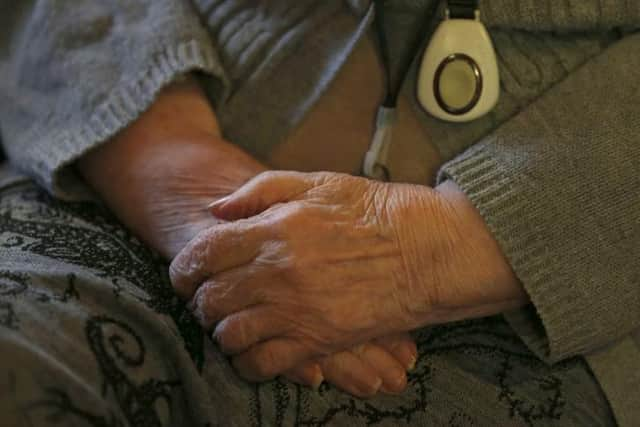Tackling loneliness could relieve pressure on stretched GPs, research finds
Dr Fuschia Sirois, from the University of Sheffield’s Department of Psychology, has found that tens of thousands of additional visits are made each year by people who feel isolated in the UK.
Around 3.7m men and women in the UK - 7.2 per cent of the adult population - say they feel lonely “often” or “always”, according to figures published by the Office for National Statistics in April.
Advertisement
Hide AdAdvertisement
Hide AdDr Sirois' research found that lonely people are more likely to make more GP visits, regardless of whether a country’s healthcare system is public or private, and woman suffering with loneliness are more likely to visit their GP than men.


It is unclear whether people are booking more appointments due to negative health effects that have been linked to loneliness or because they are looking for someone to talk to, but Dr Sirois plans to conduct more research into the underlying causes.
He identified the link between loneliness and demand for primary healthcare after reviewing 25 studies, involving more than 100,000 people around the world.
“Public health policies aimed at improving health and reducing health-care utilisation tend to focus mainly on poor lifestyle and health behaviours, but social connection factors such as loneliness receive much less attention,” said Dr Sirois.
Advertisement
Hide AdAdvertisement
Hide Ad“Our findings put the spotlight on the impact that loneliness can have on health-care utilisation, and suggest that addressing the issue of loneliness at both the societal and the community levels could improve health and reduce the use of health services.
“When we find ways to reduce loneliness, we improve the physical and mental health of people in society, and reduce the costs to the NHS. ”
Loneliness is a growing issue, particularly for older people, but the NHS is working to address it by employing an army of social prescribers, who can provide personalised support to 125,000 people a year and help them meet others and socialise.
The NHS is aiming to refer at least 900,000 people to social prescribing schemes by 2023/24, as it claims that one in five people who visit a GP surgery do not have a medical problem but can benefit from meeting others or a healthier lifestyle.
